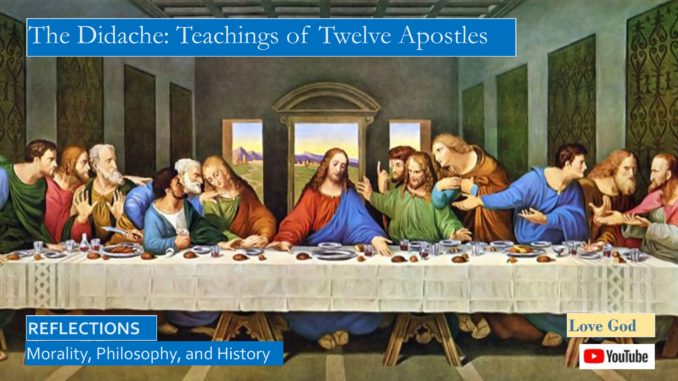
The Didache teaches there are two ways, the Way of Life, the Christian Way, and the Way of Death. This reminds us that in the Book of Acts the early church is known as The Way, it is the Way because unlike many pagan religions, belief in the Way is not a passive belief, it affects your way of life, it affects how you think, what you say, how you live.
What is the Way of Life? You shall Love God with all of your heart and with all of your soul and all of your mind and with all of your strength, and you should love your neighbor as yourself, and you should never do to others what you do not want done to yourself. Thus opens the first paragraph of the Didache, which may be among the most ancient patristic works surviving. We can even be so bold as to use the words of Jesus, truly, truly I say to you, this Commandment is the foundation of the faith, it is the rock upon which the church is built, and if you forget this primary principle when interpreting Scripture or Tradition, you may fall prey to the whiles of the Deceiver, who seeks to make good seem evil, who seeks to twist and distort theology to make it seem ugly.
Our YouTube video includes information not in our blog: https://youtu.be/vcNK5_xpEh4
The best place to purchase the eBook version of the Ante-Nicene Fathers, Volume 1, is www.christianbook.com
What is the next paragraph of the Didache?
“What you should learn from these words is to bless them who curse you, to pray for your enemies, and to fast for your persecutors. Where is the merit in loving only those who return your love? Even the heathen do as much as that. But if you love those who hate you, you will have nobody to be your enemy.”
Jesus in the Sermon on the Mount, Matthew 5, exhorts us, “if you love those who love you, what reward have you?” The Didache teaches us if we Love God and love our neighbor, our reward is the most precious reward of all, we will have only love in our hearts, and we will have no enemies. Love is its own reward.
Jesus exhorts us to turn the other cheek, to go two miles when compelled to go one mile, to offer our shirt also when someone demands our coat. The Didache connects this to living a simple life, “beware of the carnal appetites of the body,” fasting for our persecutors. “Give to everyone who asks, without looking for repayment, for it is the Father’s pleasure that we should share His gracious bounty with all men. A giver who gives freely, as the commandment directs, is blessed; no fault can be found with him. But woe to the taker.”
We pray your will read the Didache for yourself, it is a short work, the first part is a commentary on both the Decalogue and the Sermon on the Mount. We will quote a few teachings in the Didache that we in our modern world have forgotten:
“Tell no lies, my son, for lying leads to theft. Likewise do not be over-anxious to be rich or to be admired, for these too can breed thievishness.” Covetousness often leads to thievery.
“Do not be a grumbler, my son, for this leads to blasphemy.” The Church Fathers often teach that it is unwise to complain, as complaining shifts blame away from ourselves. If nothing is our fault, how can we repent?
“Do not parade your own merits, or allow yourself to behave presumptuously, and do not make a habit of associating with persons of eminence, but choose the companionship of honest and humble folk.”
“Never encourage dissensions, but try to make peace.”
“Never turn away the needy.”
“Never speak sharply when giving orders to domestic servants whose trust is in the same God as yours; otherwise they may cease to fear Him who is over you both.” As St. Paul exhorts, both slave and master are brothers before the Lord.
Although it was discovered several centuries after the Reformation, the Didache may be one of the oldest surviving patristic works. The second part is a catechetical manual covering the sacraments and worship. Regarding the Eucharist, the Didache teaches you should first confess your sins. Also, the Didache teaches that anyone who has a difference with his brother should first reconcile with their brother to avoid profaning the Eucharist.
Like the New Testament, the Didache assumes that all faithful fast. Fasting is misunderstood by many people. The Church Fathers do not teach that fasting means abstaining from food completely, and they do not recommend fasting from all food except bread and water. Fasting means eating moderately and simply. Dieting responsibly is fasting, but fasting is not dieting, because diets usually are temporary, while fasting is a way of life. In the ancient church and in the modern Orthodox Church you fast from meat in certain weeks of the church year, including Lent, and in some other weeks fast from all meat except fish. In modern Orthodox practice, each Wednesday and Friday is also a day of fasting from meat. IMHO, daily fasting should also exclude second helpings of cookies and cakes and candy.
The Didache teaches that both candidate for baptism and the baptizer should fast before baptism. The Didache teaches that you should baptize in the name of the Father, Son, and Holy Spirit, preferably in running, living water, but if none is available you can baptize by immersion in ordinary water, and if that is not practical you can baptize by sprinkling there times in the name of the Trinity.
In the early days of the Church there were many itinerant apostles and itinerant prophets who preached from city to city. They had problems that we have today with television evangelists, but the Didache teaches we should have respect for these apostles and prophets. The Didache advises that if a prophet “speaking in a trance says, ‘Give me money,’ do not listen to him, but if he bids you give to someone else who is in need, nobody should criticize him.”[1]
[1] “The Didache,” in Early Christian Writings – The Apostolic Fathers, translated by Maxwell Staniforth (New York: Dorset Press, 1968), pp. 227-237

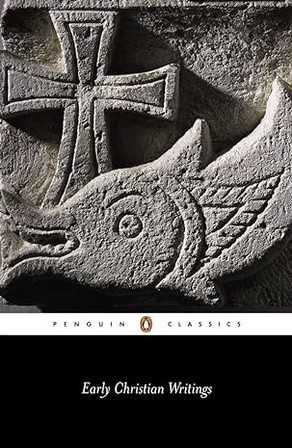
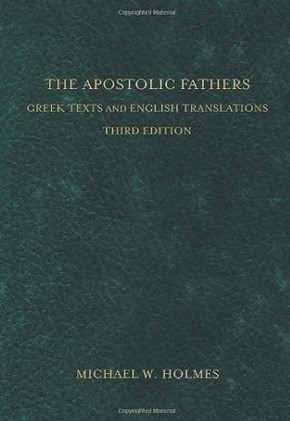
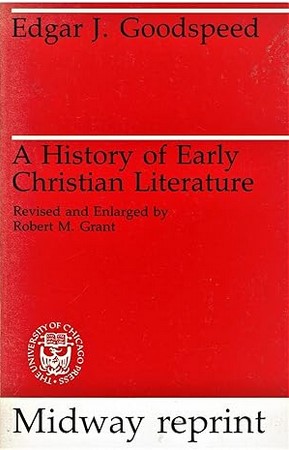
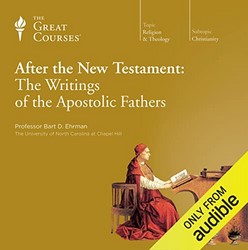
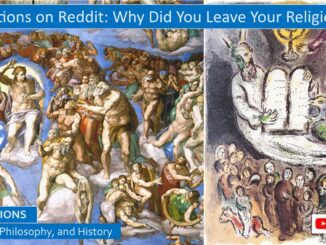
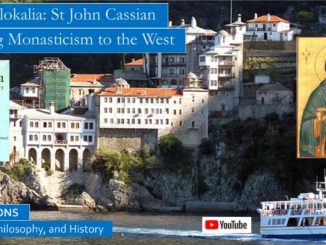
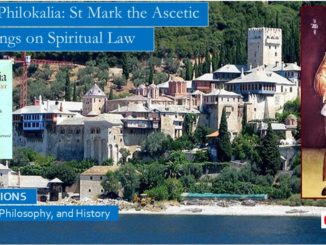
2 Trackbacks / Pingbacks